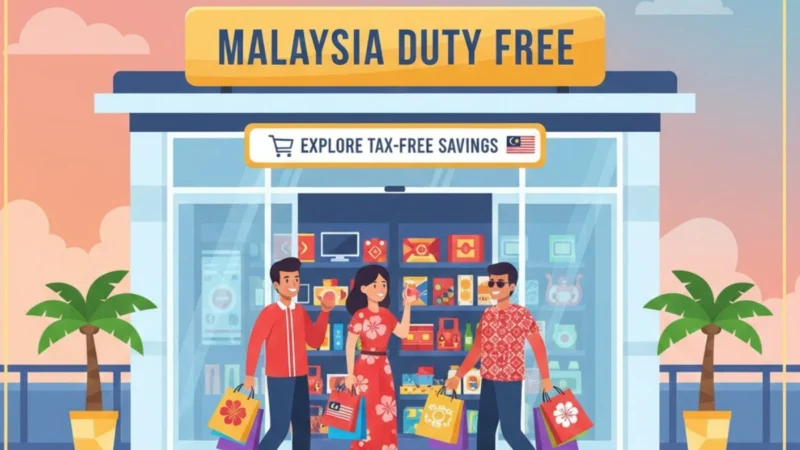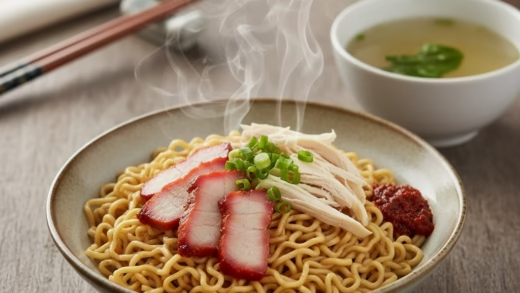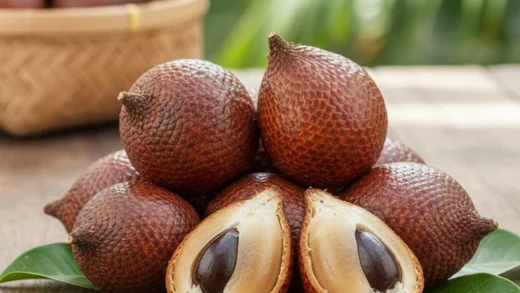12 Unknown Facts About Malaysia Duty-Free Shopping You Probably Didn’t Know

Malaysia’s duty-free landscape is more complex and strategic than most travellers realise. Beyond chocolates, liquor and perfumes, the country’s exempt zones and border hubs operate on advanced retail, logistics and tax frameworks that shape pricing, availability and the shopper experience.
Here are the top unknown facts that give Malaysia a competitive edge in the duty-free marketplace.
1. Langkawi Isn’t Fully Duty-Free for Every Product
Many travellers assume everything on the island is tax-exempt. In reality, only specific categories like liquor, chocolates, cosmetics and kitchenware receive complete duty-free treatment, while other categories follow modified tax rules.
2. KLIA and KLIA2 Sell Airport-Exclusive Products You Can’t Find Elsewhere
Global operators like Eraman and Heinemann stock travel-exclusive SKUs made specifically for aviation retail — including limited-edition liquor, fragrance variants, and bundled confectionery.
3. Labuan Has Even Deeper Duty-Free Privileges Than Langkawi
Its status as a federal territory and historical offshore financial hub means Labuan offers broader tax exemptions, especially on alcohol and tobacco.
4. Border Duty-Free Shops Can Be Cheaper Than Airports
Bukit Kayu Hitam, Padang Besar and Rantau Panjang frequently deliver lower prices on liquor and chocolates than KLIA or Langkawi due to leaner operations and strong cross-border volumes.
5. Liquor Allowances Change Based on How You Enter Malaysia
There’s a difference between flying in, arriving by ferry, or crossing by land. Certain borders enforce stricter alcohol limits than international airports.
6. Langkawi Has Duty-Free Hypermarkets for Household Goods
Beyond chocolates and alcohol, Langkawi features full-scale duty-free supermarkets selling cookware, bedding, appliances, and homeware at significantly reduced prices.
7. Same Island, Different Prices — Langkawi’s Outlets Can Vary by 25%
Shoppers often see 15–25% price differences between Kuah, Cenang, and Jetty Point. Smart travellers compare across Zon, Teow Soon Huat, Coco Valley and other major retailers.
8. Malaysia Uses Bonded Warehouses to Maintain Duty-Free Pricing
Retailers store non-duty-paid goods in secured bonded warehouses, enabling better inventory control, lower supply chain cost, and more aggressive pricing strategies.
9. KLIA2’s Heinemann Operates One of Southeast Asia’s Most Advanced Omnichannel Models
Travellers can pre-order online and pick up purchases airside — a feature still not widely deployed across ASEAN airports.
10. Some Duty-Free Chocolates Are Cheaper in Malaysia Than in Europe
Because of favourable supplier contracts and currency advantages, chocolates like Lindt, Toblerone, and Ritter Sport often cost less in Malaysia than in their home countries.
11. Multi-Bottle Liquor Deals Offer the Deepest Discounts
Single bottles may not always be cheaper, but bundle packs deliver some of the most attractive duty-free savings regionally.
12. Labuan’s Pricing Is Boosted by Maritime Supply Routes
Much of Labuan’s duty-free stock arrives via direct shipping lanes, reducing logistics cost and maintaining strong price competitiveness.







Comments are closed.